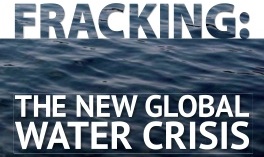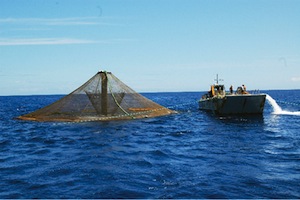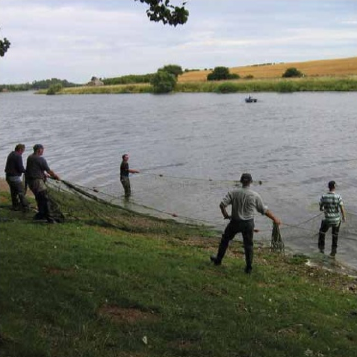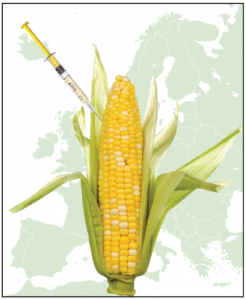 New drilling and fracking techniques have been a boon for the oil and gas industry in the United States, making it possible for companies to extract large quantities of oil and gas from shales and other “tight” rock formations. However, shale development has been a nightmare for those exposed to the resulting pollution.
New drilling and fracking techniques have been a boon for the oil and gas industry in the United States, making it possible for companies to extract large quantities of oil and gas from shales and other “tight” rock formations. However, shale development has been a nightmare for those exposed to the resulting pollution.
Archives: Fact Sheets
 Offshore aquaculture is factory fish farming of the sea, growing fish in huge, often over-crowded cages out in ocean waters. It can be problematic for both the environment and the economy. The waste – fecal matter, uneaten food, and any chemicals or drugs used in the operation – flows directly into the ocean, and the result could be long-term damage to the seafloor. Despite its negative impacts, the following groups push for, or would profit from, factory fish farming in the United States and Europe.
Offshore aquaculture is factory fish farming of the sea, growing fish in huge, often over-crowded cages out in ocean waters. It can be problematic for both the environment and the economy. The waste – fecal matter, uneaten food, and any chemicals or drugs used in the operation – flows directly into the ocean, and the result could be long-term damage to the seafloor. Despite its negative impacts, the following groups push for, or would profit from, factory fish farming in the United States and Europe.
 The open water aquaculture and salmon industries tout fish farms as an opportunity to create jobs. Given current economic struggles worldwide, any potential for a new industry to increase job opportunities is hard to dismiss. Viable, gainful employment is badly needed. Unfortunately, Food & Water Watch found that the jobs created by fish farms are unstable, in some cases undesirable, and are very few in number related to the number of fish produced. In fact, the trend in the industry has been to cut jobs to increase “efficiency,” and to abandon communities if better sites arise elsewhere. Moreover open water fish farms can threaten previously-existing jobs in tourism, recreational fishing and commercial fishing.
The open water aquaculture and salmon industries tout fish farms as an opportunity to create jobs. Given current economic struggles worldwide, any potential for a new industry to increase job opportunities is hard to dismiss. Viable, gainful employment is badly needed. Unfortunately, Food & Water Watch found that the jobs created by fish farms are unstable, in some cases undesirable, and are very few in number related to the number of fish produced. In fact, the trend in the industry has been to cut jobs to increase “efficiency,” and to abandon communities if better sites arise elsewhere. Moreover open water fish farms can threaten previously-existing jobs in tourism, recreational fishing and commercial fishing.
DOWNLOAD PDF VIEW ON SCRIBD
In June 2009, the Paris City Council announced that the city’s water system would revert to public control at the end of 2009, after a century of private control. Paris is one of more than 40 French municipalities and urban communities that reclaimed public control of their water systems over the last decade to reduce prices and improve services.
We all know that driving a gas-guzzling SUV contributes to climate change,but did you know that what you put on your plate could too? Here’s how your food choices affect climate change and what you, as a consumer, can do about it.
DOWNLOAD PDF
 When you think of an embassy, you might think of diplomats dining with world leaders and consulate staffers assisting travelers who have lost their passports. Lately, however, ambassadors representing the United States have been carrying out a less traditional sort of mission in the European Union: promoting the interests of biotechnology companies and the genetically modified products they are attempting to sell around the world.
DOWNLOAD PDF
When you think of an embassy, you might think of diplomats dining with world leaders and consulate staffers assisting travelers who have lost their passports. Lately, however, ambassadors representing the United States have been carrying out a less traditional sort of mission in the European Union: promoting the interests of biotechnology companies and the genetically modified products they are attempting to sell around the world.
DOWNLOAD PDF
VIEW ON SCRIBD




